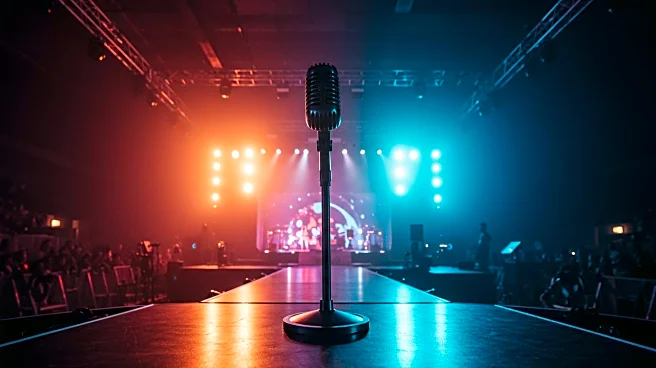What's Happening?
The Weeknd has set a new record for the highest-grossing R&B tour in history with his After Hours Til Dawn Tour. According to Billboard Boxscore, the tour has grossed $635.5 million and sold 5.1 million tickets since its launch in 2022. This achievement surpasses Beyoncé's Renaissance World Tour, which grossed $579.8 million, and Bruno Mars' 24K Magic World Tour, which sold 3.6 million tickets. The Weeknd's tour has spanned multiple continents, including North America, Europe, South America, and Australia, with the current leg in the United States and Canada being the most lucrative. The tour supports The Weeknd's albums After Hours, Dawn FM, and Hurry Up Tomorrow, and has seen significant increases in earnings and attendance compared to previous tours.
Why It's Important?
The Weeknd's record-breaking tour highlights the growing influence and commercial success of R&B music on a global scale. By surpassing established artists like Beyoncé and Bruno Mars, The Weeknd demonstrates the genre's ability to attract large audiences and generate substantial revenue. This success may encourage other R&B artists to pursue ambitious touring schedules and expand their reach internationally. Additionally, the tour's financial achievements underscore the importance of live performances in the music industry, particularly as artists seek to recover from the disruptions caused by the COVID-19 pandemic.
What's Next?
The Weeknd's After Hours Til Dawn Tour is set to conclude on September 3 in San Antonio, with projections indicating that the tour's total earnings could approach $700 million and ticket sales could reach 5.5 million. As the tour wraps up, industry observers will likely analyze its impact on future R&B tours and the broader music touring landscape. The Weeknd's success may inspire other artists to explore innovative ways to engage audiences and maximize revenue through live performances.
Beyond the Headlines
The Weeknd's achievement as the first Black artist to reach these milestones in R&B touring could have cultural implications, potentially influencing the representation and visibility of Black artists in the music industry. This success may also prompt discussions about diversity and inclusion within the industry, encouraging stakeholders to support and promote artists from diverse backgrounds.








